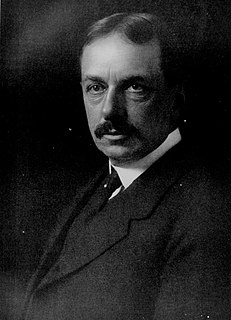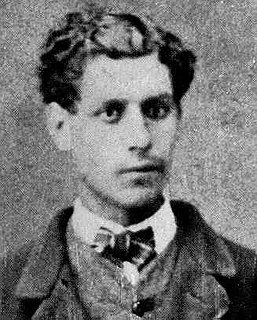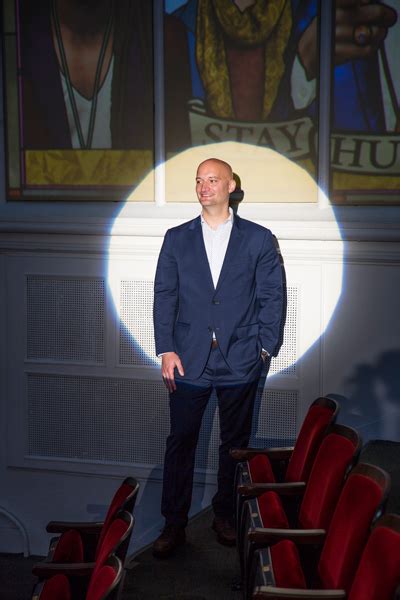A Quote by Charles Baudelaire
The idea of beauty which man creates for himself imprints itself on his whole attire, crumples or stiffens his dress, rounds off or squares his gesture, and in the long run even ends by subtly penetrating the very features of his face. Man ends by looking like his ideal self. These engravings can be translated either into beauty or ugliness; in one direction, they become caricatures, in the other, antique statues.
Related Quotes
Men and women make their own beauty or their own ugliness. Sir Edward Bulwer Lytton speaks in one of his novels of a man "who was uglier than he had any business to be;" and, if we could but read it, every human being carries his life in his face, and is good-looking or the reverse as that life has been good or evil. On our features the fine chisels of thought and emotion are eternally at work.
Man—every man—is an end in himself, not a means to the ends of others; he must live for his own sake, neither sacrificing himself to others nor sacrificing others to himself; he must work for his rational self-interest, with the achievement of his own happiness as the highest moral purpose of his life.
What a wee little part of a person's life are his acts and his words! His real life is led in his head, and is known to none but himself. All day long, the mill of his brain is grinding, and his thoughts, not those of other things, are his history. These are his life, and they are not written. Everyday would make a whole book of 80,000 words -- 365 books a year. Biographies are but the clothes and buttons of the man -- the biography of the man himself cannot be written.
No man is an island- he is a holon. A Janus-faced entity who, looking inward, sees himself as a self-contained unique whole, looking outward as a dependent part. His self-assertive tendency is the dynamic manifestation of his unique wholeness, his autonomy and independence as a holon. Its equally universal antagonist, the integrative tendency, expresses his dependence on the larger whole to which he belongs: his 'part-ness.'.
I believe that the unity of man as opposed to other living things derives from the fact that man is the conscious life of himself. Man is conscious of himself, of his future, which is
death, of his smallness, of his impotence; he is aware of others as others; man is in nature, subject to its laws even if he transcends it with his thought.
Long ago man formed an ideal conception of omnipotence and omniscience which he embodied in his gods. Whatever seemed unattainable to his desires - or forbidden to him - he attributed to these gods... Now he has himself approached very near to realizing this ideal, he has nearly become a god himself.
The all-round liberally educated man, from Palaeolithic times to the time when the earth shall become a cold cinder, will always be the same, namely, the man who follows his standards of truth and beauty, who employs his learning and observation, his reason, his expression, for purposes of production, that is, to add something of his own to the stock of the world's ideas.
Amid the worry of a self- condemnatory soliloquy, his demeanour seemed grave, perhaps cold, both to me and his mother. And yet there was no bad feeling, no malice, no rancour, no littleness in his countenance, beautiful with a man's best beauty, even in its depression. When I placed his chair at the table, which I hastened to do, anticipating the servant, and when I handed him his tea, which I did with trembling care, he said: "Thank you, Lucy," in as kindly a tone of his full pleasant voice as ever my ear welcomed.
It is God's earth out of which man is taken. From it he has his body. His body belongs to his essential being. Man's body is not his prison, his shell his exterior, but man himself. Man does not "have" a body; he does not "have" a soul; rather he "is" body and soul. Man in the beginning is really his body. He is one. He is his body, as Christ is completely his body, as the Church is the body of Christ
Interdependence is and ought to be as much the ideal of man as self-sufficiency. Man is a social being. Without interrelation with society he cannot realize his oneness with the universe or suppress his egotism. His social interdependence enables him to test his faith and to prove himself on the touchstone of reality.
Socrates was the chief saint of the Stoics throughout their history ; his attitude at the time of his trial, his refusal to escape, his calmness in the face of death , and his contention that the perpetrator of injustice injures himself more than his victim, all fitted in perfectly with Stoic teaching. So did his indifference to heat and cold, his plainness in matters of food and dress, and his complete independence of all bodily comforts.
If a man withdraws his mind from the love of beauty, and applies it as sincerely to the love of the virtuous; if, in serving his parents, he can exert his utmost strength; if, in serving his prince, he can devote his life; if in his intercourse with his friends, his words are sincere - although men say that he has not learned, I will certainly say that he has.






































